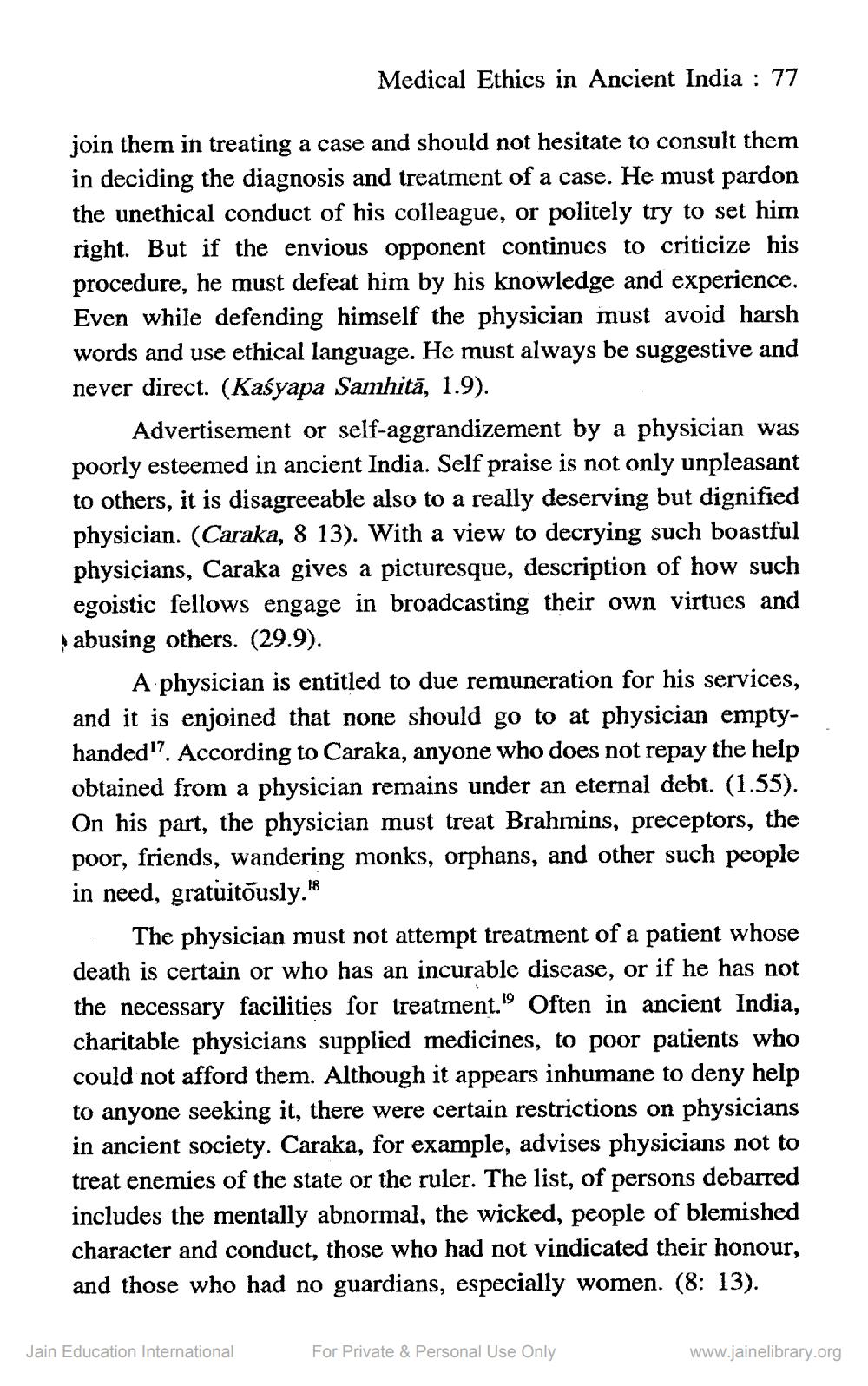________________
Medical Ethics in Ancient India : 77
join them in treating a case and should not hesitate to consult them in deciding the diagnosis and treatment of a case. He must pardon the unethical conduct of his colleague, or politely try to set him right. But if the envious opponent continues to criticize his procedure, he must defeat him by his knowledge and experience. Even while defending himself the physician must avoid harsh words and use ethical language. He must always be suggestive and never direct. (Kaśyapa Samhitā, 1.9).
Advertisement or self-aggrandizement by a physician was poorly esteemed in ancient India. Self praise is not only unpleasant to others, it is disagreeable also to a really deserving but dignified physician. (Caraka, 8 13). With a view to decrying such boastful physicians, Caraka gives a picturesque, description of how such egoistic fellows engage in broadcasting their own virtues and abusing others. (29.9).
A physician is entitled to due remuneration for his services, and it is enjoined that none should go to at physician emptyhanded"?. According to Caraka, anyone who does not repay the help obtained from a physician remains under an eternal debt. (1.55). On his part, the physician must treat Brahmins, preceptors, the poor, friends, wandering monks, orphans, and other such people in need, gratuitously.is
The physician must not attempt treatment of a patient whose death is certain or who has an incurable disease, or if he has not the necessary facilities for treatment." Often in ancient India, charitable physicians supplied medicines, to poor patients who could not afford them. Although it appears inhumane to deny help to anyone seeking it, there were certain restrictions on physicians in ancient society. Caraka, for example, advises physicians not to treat enemies of the state or the ruler. The list, of persons debarred includes the mentally abnormal, the wicked, people of blemished character and conduct, those who had not vindicated their honour, and those who had no guardians, especially women. (8: 13).
Jain Education International
For Private & Personal Use Only
www.jainelibrary.org




